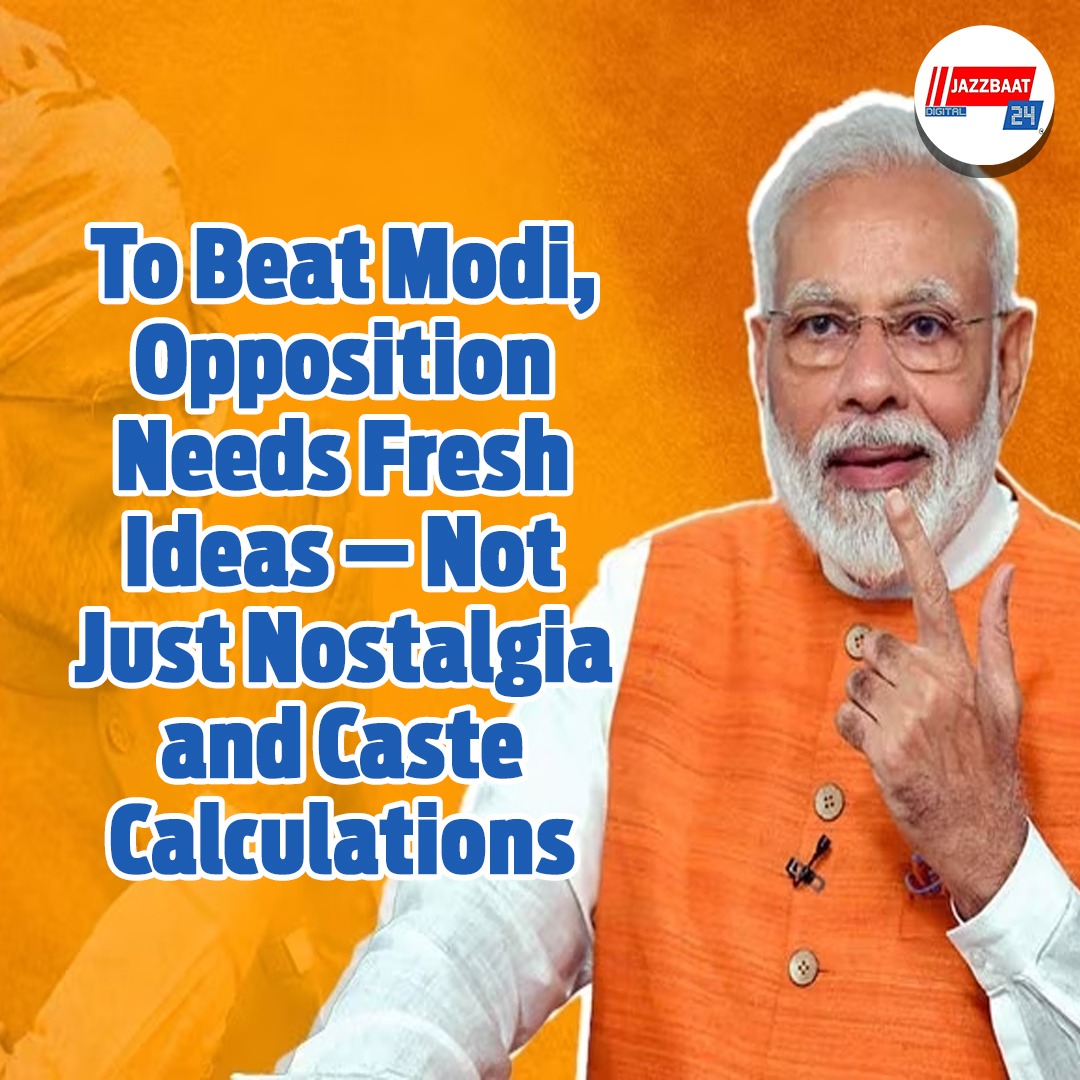
If the 2024 Lok Sabha election and its aftereffects have proved anything, it is that the Indian Opposition's tried-and-tested playbook was not enough to defeat Prime Minister Narendra Modi and the BJP's equally efficient political machinery. Despite an energetic campaign, the Opposition's resort to nostalgia for earlier coalitions, caste math, and the shift towards classical slogans could not deliver a knockout blow. The message from the voters is unmistakable: to take down Modi, the Opposition needs new ideas, not yesteryear's politics.
Modi has controlled Indian politics for much of the past decade by presenting himself as a champion of change, of efficiency, and of national pride. The messaging of his administration-on everything from welfare schemes to brawn-driven nationalism-has been constant and successful. The BJP's organizational muscle, social media power, and capacity for agenda-setting have put the Opposition in a tight spot. To respond, most Opposition parties have fallen back upon tactics effective during the 1990s and early 2000s: forming large anti-BJP alliances, concentrating on caste politics, and recalling the memories of a secular, plural India.
But the India of 2025 is not the India of 1996 or even 2014. The electorate is younger, more urban, and more aspirational. Voters are less sentimental about nostalgia for the Emergency or the Mandal years, and more so about employment, inflation, education, and the government. The BJP's success in expanding its reach beyond the core base-convincing OBCs, Dalits, women, and even minorities-is an indicator that identity politics would not succeed in cutting short its steam. The Over-dependence of the Opposition on caste mathematics and yearning for nostalgic days risks looking out of step with the dream and reality of modern India.
What, therefore, should the Opposition's tactic be? It has to first outline a positive, looking-forward agenda which appeals to the hopes and concerns of the emerging Indian voter. This can no longer involve whining against Modi or pledging to put things back where they were pre-Modi. The Opposition has to articulate an alternative vision of what India shall look like tomorrow-one that addresses jobs, growth, education, health, global warming, and digitization. It must pose ambitious policy alternatives rather than incrementalist tweaks. For instance, rather than only opposing privatization or farm legislations, the Opposition parties could propose fresh paradigms on inclusive growth, agricultural progress, and social security.
Secondly, there should be organizational rejuvenation on the part of the Opposition. BJP electoral monster runs on disciplined cadre, innovative technology, and culture of accountability. The Opposition parties, by way of comparison, are bedeviled with intra-party wars, dynastic politics, and anachronistic campaign methodology. In order to survive, they will need to invest in grassroots mobilization, build new leadership, and employ digital media to speak directly to voters. This requires humility and a willingness to learn not just from previous mistakes but also from the BJP's own success.
Third, the Opposition must reclaim the rhetoric of nationalism and development. It has ceded the terrain of patriotism and progress to the BJP for too long, being caricatured as obstructionist or anti-national in the bargain. By staking national interests-whether on security, infrastructure, or foreign policy-while also standing up for constitutional values and minority rights, the Opposition can present itself as patriotic as well as progressive.
Finally, unity remains necessary but must be the product of common purpose and vision, not opportunism. The INDIA coalition and other coalitions must move beyond seat-allocation opportunism to programmatic convergence. Voters are smart; they can see through anti-Modi-only alliance optics; they would want to know how the Opposition intends to rule, not just resist.
Briefly put, nostalgia and caste arithmetic are not going to cut it anymore. If the Opposition wants to pose a real challenge to Modi, it must bring something fresh to the table-new ideas, new faces, and a new narrative-one that resonates with the India of the present and the future. Only then can it hope to build a competitive alternative and reestablish balance in Indian democracy.